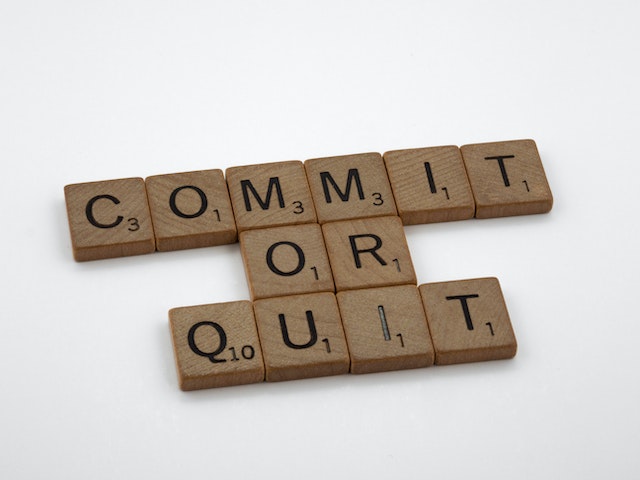As a writer, you may find it hard to give yourself permission to do some of the things that you need to do to maintain your writing progress and creativity.
I’m not sure why this is. But I know I have to remind myself sometimes that it’s “okay” to follow through on whatever my muse wants or needs at a certain time.
I have a feeling a lot of other writers feel the same way.
In case you’re one of them, this post is for you.
Writers Often Hold Back on Giving Themselves Permission
The last two years have been busy ones for me as a writer. It’s all good, but it did leave me feeling tired and uninspired.
What I needed was several weeks of rest—without writing pressures. But I had a really hard time permitting myself to take them.
I tried. But every day that passed when I wasn’t working on another project I felt guilty. Lazy. Unproductive. So I tried to force myself back into writing.
Of course, that didn’t work very well.
There are a lot of other examples. You may be stuck on a piece of writing, but reluctant to do what you need to do to inspire yourself again. Maybe that’s getting away for a long weekend. Or spending some extra time daydreaming, listening to music, or going for several long walks.
You may need to dive into the research on your story—to the point of being obsessive about it. Or you may need to cancel all your appointments and commitments while the muse is with you to finish out your last few chapters.
Or maybe you’re really unhappy in your writing career right now, and you need to permit yourself to feel that. But you’re afraid to.
Why do we do this to ourselves?
Why Might You Hesitate to Give Yourself Permission?
Some say that it’s because we grew up having to ask permission from authority figures for just about everything.
“Most people don’t realize that a culture of asking permission creates one where many people’s self-worth is attached to their ability to receive permission,” writes Christiane Northrup, M.D. “So, it is not uncommon for many people to carry these patterns through adulthood.”
She adds that most of us are “programmed from birth to ask ‘authority figures’ for permission for everything.”
Others feel it’s about self-care—that many of us hesitate to permit ourselves to get what we need because we worry that it’s self-indulgent.
Still, others say that we hold back because of self-doubt—we worry that we’re not really “writers” so how can we give ourselves to do some of the strange or even crazy things writers do?
And then there’s the worry that if we give in and do what we know we need to do, we’ll be seen as “odd” or “different” in our social groups, and therefore face the scary situation of being isolated.
Give Yourself Permission to Be the Artist You Are
The solution is to permit yourself to be who you are, creative quirks and all. But that’s not always easy to do. We all want to fit in, and most of us don’t want to be seen as “weird” or “strange.”
But it’s often that very weirdness or strangeness that makes our stories shine.
“The only way you can even begin to fulfill your purpose and be who you are meant to be is to give yourself permission to live for the things you love,” writes Dr. Northrup. “Of course, living for what you love means that you also need to give yourself permission to let go of worrying what other people may think of you. When you let go of the need for approval you can begin to live your life’s purpose.”
I would add that only when we permit ourselves to be wholly and completely who we are as writers and artists can we even begin to fulfill our potential in the work we produce.
Giving ourselves permission is the starting point. We must do it again and again, diving deeper and deeper into who we are while improving our writing skills. That’s the only way to come close to achieving everything we have the possibility of achieving.
7 Things to Give Yourself Permission to Do This Year
As we begin a New Year, we have the chance to regroup and go after our writing dreams. To help make this your best writing year ever, try giving yourself permission to do the following seven things.

1. Quit
Most writers are afraid to permit themselves to do this. They fear that if they allow themselves to quit, they’ll never write again.
My thinking is that if that happens, it was probably supposed to happen. Only when we are driven to write do we produce our best material. At least, I’ve found that to be the case.
I had a writing mentor once who said that he had “quit writing” several times in his career. He’d get sick of it—or of the struggles of publishing and marketing—and quit. Go do something else. During these times, he fully planned on leaving writing behind for good.
Imagine his surprise when after a time, the writing bug bit him again and he landed back in front of his laptop.
I think there is some magic in allowing yourself to quit. It takes writing off the table. It removes all the pressure. It allows you to focus on something else for a while, which may be just what you need to come back to writing with all your energy and motivation.
So if you feel compelled to quit, don’t be afraid of it. Give yourself permission. See what happens. No matter what, it will be okay.

2. Take a Break
Though this is similar to quitting, it’s not quite the same thing. You may have no intention of quitting. You love writing and you can’t imagine doing anything else.
But you’re tired. You’ve had a busy year or two. And you’re having to force yourself to write.
It can be tough to permit yourself to take some time off from writing, but that may be just what you need. It’s not easy. You may feel like if you let it go for a couple of weeks (or gasp, months) that you’ll lose your groove.
This isn’t a decision that should be taken lightly. It is possible to lose your place in a story or to lose your motivation when you step away from writing for a while. If you can rest in other ways while maintaining your writing routine, do it.
But if you find after a couple of weeks that you’re still struggling, take a break. Allow your creative well to fill once again.

3. Write Something Completely Different
Every time I watch a season of “The Voice,” I’m reminded once again how important it is to find your niche. On the show, it’s that certain type of song. When an artist finds it, they usually see their ratings soar. Before that, they may be near invisible, but afterward, no one can seem to stop talking about them.
I think we writers have to follow a similar type of journey to find the stories we’re meant to write. We may do just “okay” on traditional murder mysteries, but find that our characters come to life in cozy mysteries. Or we may enjoy writing fantasy, but find that our stories become much more riveting when we switch to the horror genre.
Then there’s the problem of boredom. Some writers just don’t do well writing in the same genre over and over. If that’s you, you may fear trying something new because you might lose your publisher or some of your readers. Yet without making that change, you may grow bored with your writing—and your stories will show it.
Give yourself permission to write something different whenever you feel the urge to do so. Sometimes it’s just a good way to get the kinks out and inspire new, creative ideas. Other times it can lead to a whole new type of writing career.

4. Rage
Writers are advised to “grow a thick skin.” We’re supposed to learn to take rejections, poor reviews, poor sales, writer’s block, and all the rest in stride.
Unfortunately, that sort of advice usually leads to repressed emotions—and those are never good for an artist. They lead to increased negativity, health problems, and a reduced ability to follow your imagination. Your gift as an artist is your ability to feel, so squashing your emotions is a recipe for failure.
I suggest you allow yourself to rage now and then. One-star review? Are you kidding? Journal your rage on your laptop or have a good complaining session with your writing friends. Throw a pillow across the room (watch out for the cat) or go through a kickboxing workout.
We need to move through these emotions, not block them. That means that it’s okay to feel them, express them, and then when you feel calm again, go back to writing.

5. Adopt Strange Schedules
It’s unhealthy to stay up too late. You tend to snack, and that leads to weight gain.
Worse yet to stay up all night. You’ll be dragging for days.
Taking a month off to write? Are you crazy?
It’s true—it is unhealthy to stay up late and give in to the munchies. But hey, we have to do what we have to do for our art, right?
I’m not one to advocate for unhealthy habits, but here I am writing about wellness all the time and I constantly struggle with staying up too late. I keep working on it as I feel better when I get to bed at a reasonable time. And my health matters to me.
But I have to permit myself sometimes to indulge my inner creator’s desire to stay up late chasing after some inspiration or another. If you feel compelled to keep some strange hours now and then because of your artist’s brain, it’s okay. Just try to do everything for your health that you can to cope with it.

6. Do What It Takes to Find Inspiration
This is one I struggle with often. I tend to be a hard worker, dogged in my determination, and then when I finally get to a place where I’m worn out—and my muse has left the building—I have a hard time giving myself permission to withdraw for a bit to find new inspiration.
Music, movies, movement, nature—these are things that help me return to my inner artist self. You must know what things work for you when you need inspiration so that you can dive into them when you need to.
It may feel self-indulgent, but it’s what we need to do as creatives. So indulge away. Get lost in whatever carries you along that stream of consciousness. You’ll find yourself a lot happier when you reclaim that inner core of creativity.

7. Be a Little Weird
This is one of the main reasons writers fail to give themselves permission—it seems that what we want to do sometimes is a little weird.
There’s power, though, in embracing that weirdness. In letting it be how it is, and who cares what people think?
“It can be hard to give yourself permission to create if people close to you don’t understand why you are doing it,” writes novelist Cali Bird. “It doesn’t matter if anyone else gets it. It doesn’t matter where they think you should focus your attention. What matters is what makes you excited. What it is that you have a burning desire to say?”
You don’t have to be perfect at it right away. It takes time and experience to grow into your own skin. Start by permitting yourself today to follow your weird inclinations when it comes to your writing and creativity. Then do it again tomorrow and the next day.
“We carry so much shame about making mistakes and taking breaks that it ends up costing us, rather than helping us move forward,” writes mindset coach Suzanne Paulinski. “When we give ourselves permission to do what we feel in our gut is the right thing to do, however, we bring so much freedom into our lives.”

